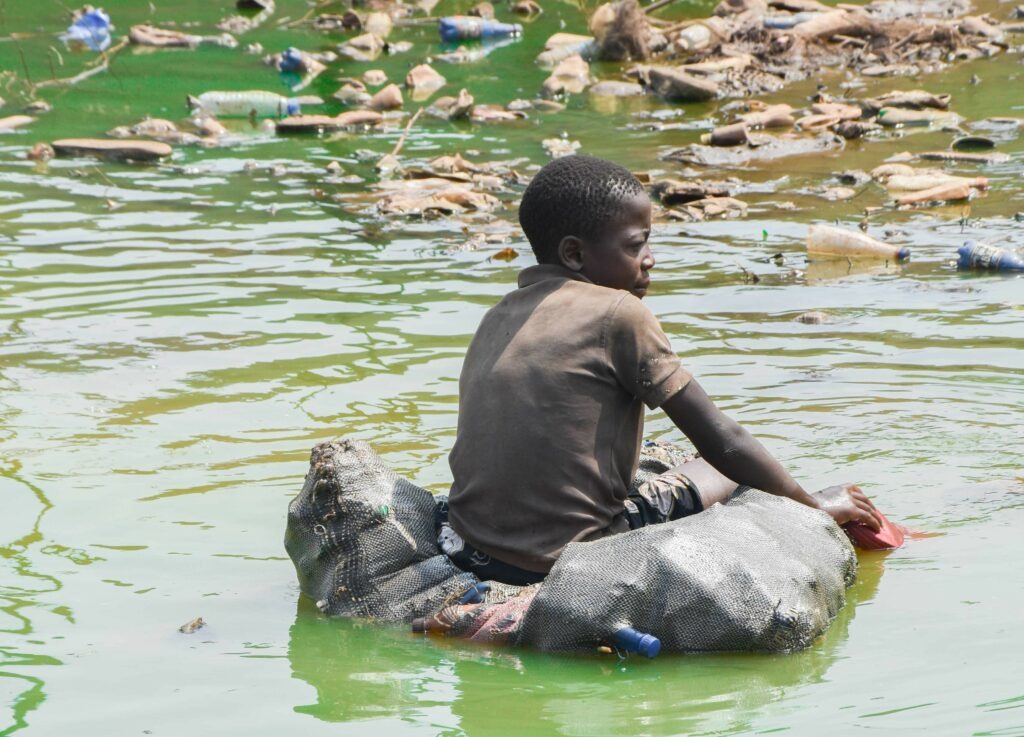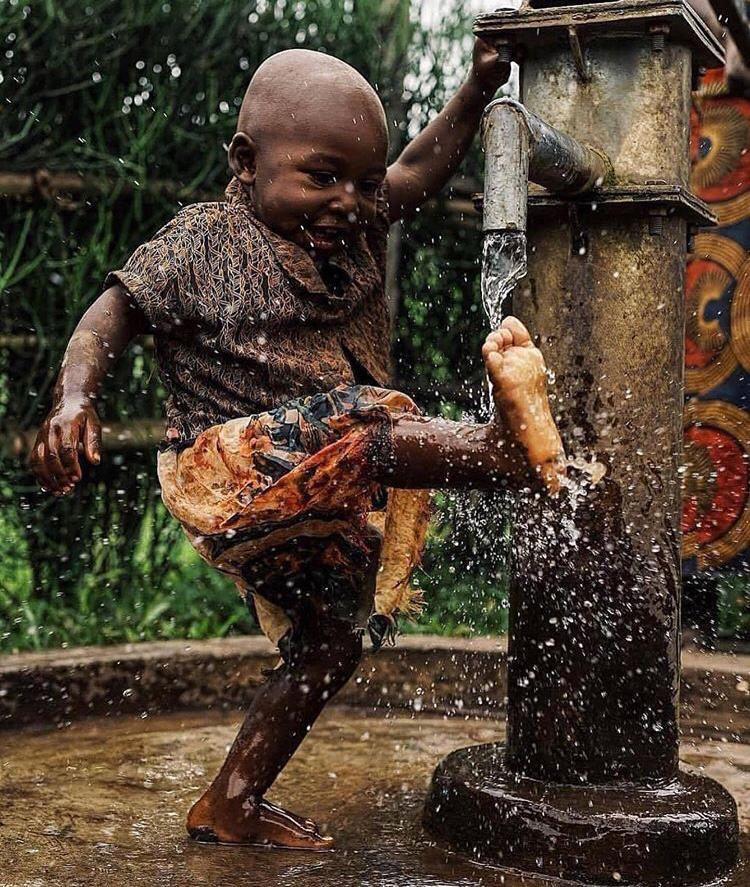While humanity celebrates World Water Day on March 22 each year, 2/3 of the inhabitants of the Democratic Republic of Congo still do not have access to drinking water, despite the country’s water wealth.
Humanity celebrates fresh water every March 22, in celebration of World Water Day. This day, celebrated since 1993, aims in particular to reflect on urgent measures for the sustainable management of drinking water throughout the world. Indeed, the world population as a whole does not have access to water, according to the report of the United Nations which specifies that approximately 2.2 billion inhabitants out of more than 8 billion possible, are experiencing problems related to water shortage.
But if the water deficiency problem becomes an emergency on the 21th century, the causes of this deficit in the world need to be mentioned. Among them are the devastating effects of climate change on biodiversity, as well as water pollution. This is why the water crisis is now becoming a global emergency, why international organizations need to make it a priority. Simply because the dysfunction of the water cycle would jeopardize the actions already carried out so far to respond to global emergencies, namely hunger, health, disaster management, and we can even mention the problems of industry or peacekeeping.
READ ALSO
Our share of responsibility in the waste management of our communities
Despite the sustainable development goal set by the international community in 2015, that of ensuring that by 2030 everyone has access to water and hygienic sanitation services by 2030, the results, eight years after this commitment, are far from positive. What to ring the alarm bell?
Water, source of life; and the United Nations water conference
Planet earth is surrounded by water. More than 72% of its surface is made up of water, including seas, oceans, lakes and rivers. Water is also present in the atmosphere in the form of clouds, rain or vapour. We also find in the groundwater, the quality of fresh water, which is needed in particular by human species to survive. However, this natural wealth only represents less than 4% of the total quantity of water.
And the more human needs increase, the more fresh water resources are reduced. It is therefore necessary to preserve water, which, according to the United Nations, is the basis of all development efforts aimed at shaping a better future.
It is in this perspective that was launched in New York, this Wednesday, March 22, 2023, the united nations water conference. Objective, to make decisive commitments to give importance to action programs for water. The exchanges on the need for water which extend over three days and which bring together leaders from all over the world, will thus try to find solutions to the global crisis that is the war waged on water as a result of its management. . All eyes remain on the outcome of this session, and the commitments that will be made for the good of all humanity.
READ ALSO
Amani Festival, would it be a preaching in the desert?
The Congolese population and water, like a beggar sitting on gold
The Democratic Republic of Congo remains one of the great freshwater-rich countries in the world. Through the immensity of its hydrographic basin, this Central African country has a quantity of renewable water estimated at 10,283 km3which means that the DRC is classified in the top 10 countries rich in renewable water in the world.
“In the city of Bukavu, the only households with drinking water meters make it a gold mine. »
Unfortunately, despite this potential, like so many other natural resources available to our country, the Congolese inhabitants remain engulfed by problems of access to drinking water, with the consequences that this generates on the social, environmental and especially food level. . Indeed, only 30% of Congolese have access to drinking water, according to the report of the African Bank of Development. Statistics that remain worrying all the same, on a Congolese population estimated at more than 100 million inhabitants.
In the town of Bukavu for example, in the administrative commune, Ibanda, more than half of the population does not have access to water from REGIDESO. They are content with water from Lake Kivu, despite the quality of the water itself, and the only households with drinking water meters make it a gold mine, while the rest of the population remains vulnerable.

Given the need for drinking water, residents are forced to travel long distances, walking the busiest streets, just to get water, sometimes paying fees to suppliers. During this time, REGIDESO remains faithful by distributing water consumption bills, without ensuring the fee to its customers. The consequences are unavoidable: the persistence of waterborne diseases, given that most of the population does not have access to drinking water.
Referring to the international theme of World Water Day, an appeal is launched to the Congolese authorities to accelerate change and resolve the water and sanitation crisis. The future of the Congolese depends on it.
